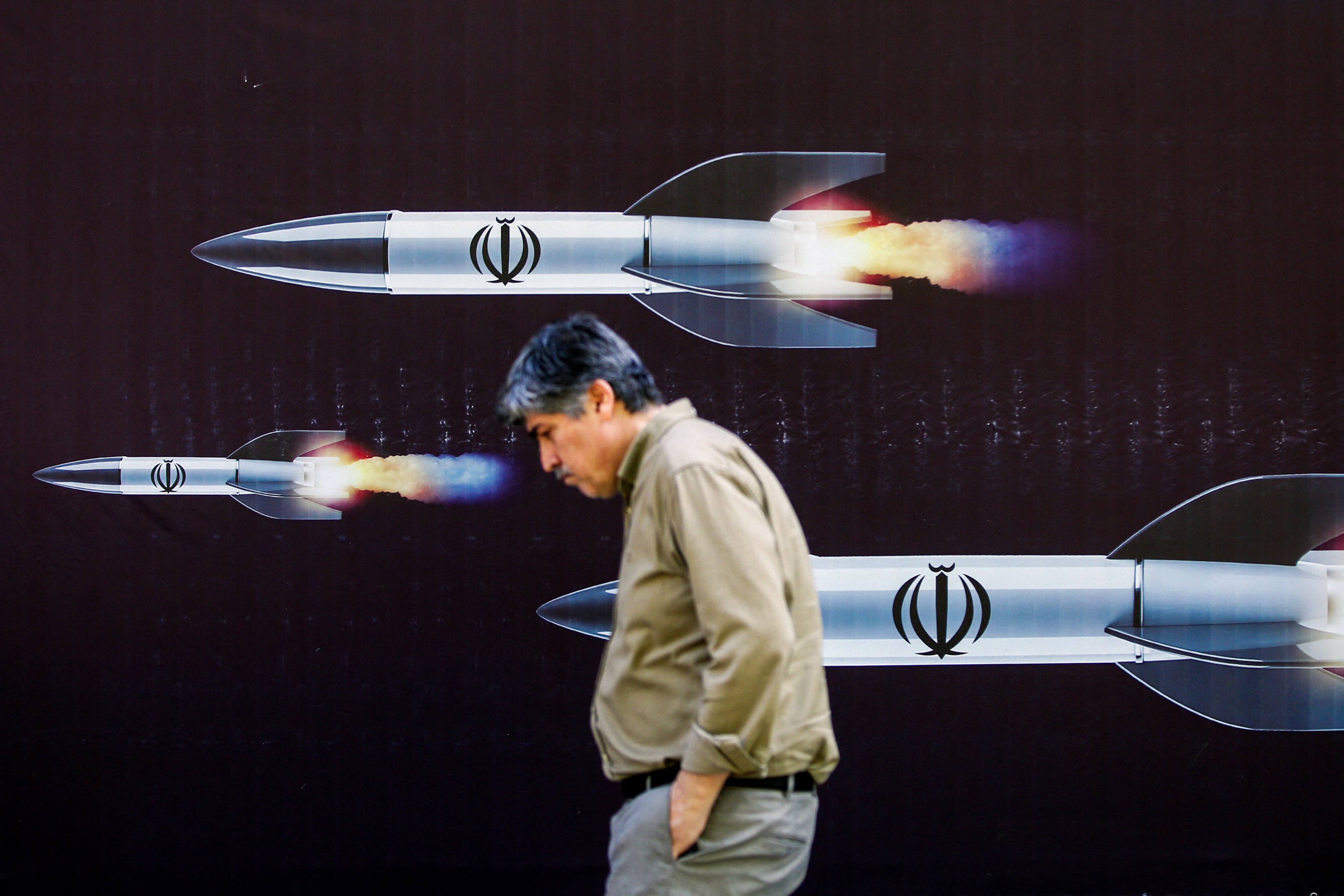Israel and Iran must not let these violent skirmishes turn into war
Editorial: Israel and Iran have entered an era of tit-for-tat hostility, in which the two sides’ blows are intended to be as meaningful as they are explosive. The much-anticipated assault on Rafah would fracture this new state of relatively low-key conflict – for the sake of the region, it must be ruled out now

Is this not how wars start? Conventionally, one sovereign state deliberately bombing the embassy of another sovereign state in a third country would be a reason to go to war, and a lawful one.
This is indeed what happened on 1 April, when Israel destroyed a building within the Iranian embassy compound in Damascus, Syria. Iran, however, did not declare war in true 19th-century style. It instead launched a huge one-night bombardment of assorted missiles at Israel, almost all of which were dealt with before they could land through intervention by Israel and other, friendly, air forces, with the fabled Iron Dome anti-missile defence system working impeccably.
Again, even though the Iranian assault turned out to be more a show of Israeli than Iranian strength, that attempted bombardment would at least notionally serve as a perfectly adequate casus belli for Israel. Yet it provoked Israel “only” to retaliate via a precisely targeted aerial assault on a Revolutionary Guard airbase and munitions store – more than likely from whence the Iranians had dispatched their own drones towards Israel days before.
It was hardly a trivial response, but nor was it all-out war. The airbase in Isfahan is reportedly close to one of Iran’s nuclear facilities, but that was spared. It looks like, and was intended to be, a warning shot. Israel, equally carefully, avoided civilian areas, and refrained from using more massive force. The opportunity to assassinate any of Iran’s theocratic and military leadership was not taken. Both sets of actions were signalled well in advance, allowing time for the other side to prepare.
Thus far, the Iranian reaction to the destruction of its airstrip has been muted. State media has downplayed what was in any case a limited incident, and the experts agree that further retaliation, let alone escalation, is unlikely, at least in the short term. Sighs of relief all round, then.
Yet these tit-for-tat moves are more than mere theatrics; such direct action between these two historic enemies has never happened before, and that matters. It sets a precedent that can be repeated, and probably will be, given the war in Gaza and associated activity by Iranian proxies in the region, as well as Israel’s existential fear of Iran possessing nuclear weaponry.
So two lines have been crossed in recent weeks – that Israel can and will hit targets from its own soil and aircraft in Iran; and vice versa. The two states have moved from intense fighting essentially by proxy, towards what would normally be regarded as acts of war. All too conscious of the risk of a regional conflagration, which Iran certainly does not want right now, the two sides’ blows are laden with messaging as well as high explosives – the moves are retaliatory, rather than escalatory.
The dangers inherent in this new style of relatively low-key conflict are obvious – and are indeed how even more serious conflicts can start. Either side could misread the other’s intentions; bombing raids may go wrong; the domestic reaction to a slaughter of civilians or military humiliation could force the leadership of either nation to up the ante, and edge closer to full-scale war.
Cynics on both sides may even have a vested interest in escalation – Hamas wanting to bring Iran in, and some elements in Israel perhaps hoping that America will neuter Iranian aggression and end for good Tehran’s game-changing nuclear ambitions. After all, we now know that, as president, Donald Trump requested options for attacking Iran’s main nuclear site, before deciding not to make the order. Benjamin Netanyahu must look back on that with some chagrin.
Further evidence that Hamas isn’t as keen on peace as some assume, and thinks it may have something to gain from prolonging the war and pressuring Iran to join in, comes from its persistent refusal to accept a ceasefire on the terms Israel is offering. Antony Blinken, the US secretary of state, may have been wrong to call Israel’s proposals “generous”, but they would at least provide for Gazans to get out of the way of the imminent Israeli assault on Rafah, to return to what is left of their homes in the north, and for urgent and massive humanitarian assistance to arrive.
The way Israel has fought its war has been disproportionate, counterproductive, and landed it with a charge of genocide at the International Court of Justice; but that cannot and does not absolve Hamas for the atrocities of 7 October, nor justify its recalcitrance now.
The assault on Rafah, about which Israel’s friends and allies have pleaded, should not go ahead – and not least because it would do so in this new, changed, context of Israeli-Iranian hostility. Israeli forces going into Rafah was always going to compound a humanitarian disaster, and be dangerous to regional stability – and it is even more so now. Mr Netanyahu should think again about what is really in Israel’s best long-term interests. It is time for de-escalation.



Join our commenting forum
Join thought-provoking conversations, follow other Independent readers and see their replies
Comments